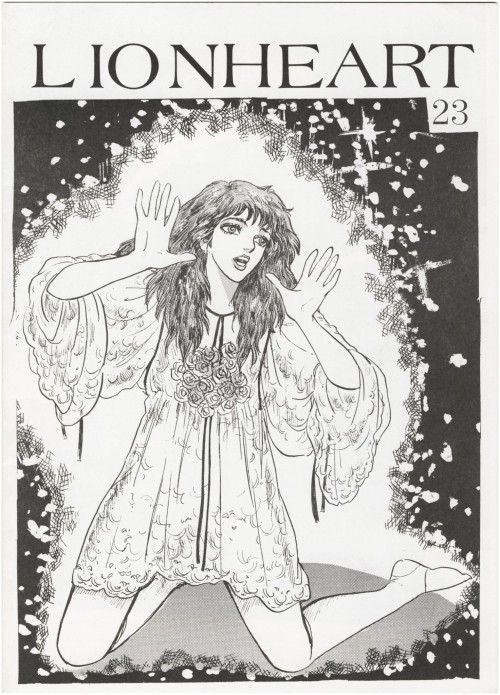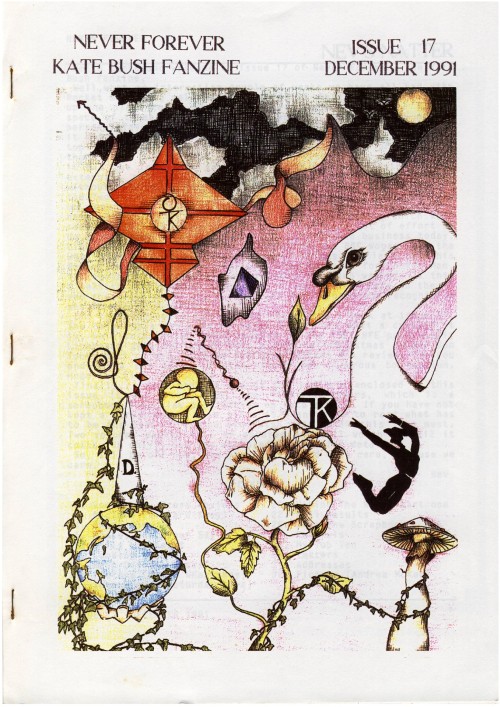Onlycarrion - Only The

More Posts from Onlycarrion and Others

margiela in footprint: the tracks of shoes in fashion - geert bruloot, hettie judah + dodi espinosa (2015)
wild conjecture but i’ve been thinking about this post and whether, if as a basically-apocryphal little web search attests, cortisol levels begin to rise around 2-3am, this is why staying up that late feels so good, even or especially when there’s nothing on
i recall a piece of research about a possible use for an existing, relatively cheap and common drug that could be given in the immediate hour after a traumatic event (eg a car crash, a mass shooting) that would stop you developing PTSD; not just calm you down right now but prevent any long term effects from developing. you seem to have read a lot of papers, am I misremembering something or is that real. it wasn't in common usage, it was just a trial.
they were talking about hydrocortisone, the same stuff you put on itchy spots if you have a rash or something. hydrocortisone is the same thing as cortisol, which is known to the public as "the stress hormone". it's extremely good at suppressing inflammation.
before they started actually doing the research they assumed that PTSD patients would have higher cortisol in their systems than everyone else, but they found the exact opposite. PTSD patients are chronically low on cortisol, and increasing their circulating cortisol to normal levels makes them feel better. this may explain why PTSD patients seem to be "really good in emergencies", as the stress of the situation just brings them up to a normal cortisol level while everyone else is getting way too much, leading to panic.
at this point there have been tons of studies on cortisol in PTSD, including administration to crisis victims to prevent PTSD forming in the first place. use Sci-Hub to read full articles.
i got my hands on some hydrocortisone recently and can confirm it fixes an unbelievable number of chronic problems for me. however this is a drug with a very very high index of possible side effects and dosing is real tricky so i cannot recommend it as safe or easy for people to self-administer.
tme ppl be like hoooly fuck you’re so #gender ive always wanted to be a malecoded girltwink femboy shame of god you’re so #goals i wish femininity was as impossible for me as it is you
Where would you suggest someone begins looking in order to fully understand the scope and breadth of Milton's Paradise Lost? I've started pursuing the bible, and some classical texts (Ovid, Virgil, Homer & Hesiod), but I feel like I'm still missing the mark with it. It is such a beautiful and rich text, and I would love to be able to enjoy it fully, so any help pointing me in the right direction would be very greatly appreciated.
yeah Paradise Lost is a strange thing (strange and unorthodox even in its day) and it takes some time and work—you’re not going to grasp all of it immediately.
first, you need to understand Milton’s politics: this is the era of the English Civil War (see Braddick’s God’s Fury, England’s Fire (ebook) or Purkiss’, The English Civil War: A People’s History), and Milton is a public writer with powerful republican convictions, knee-deep in pamphlet wars and controversy. when Milton begins to write PL, it’s nine years after an English king was executed by his subjects, and a Commonwealth declared. Milton agrees to support that “republic”, even though the rule of Oliver Cromwell, Lord Protector, contradicts his beliefs. but the republic collapses—in 1660, the son of the executed king is restored to the throne, and Milton goes into hiding. readers have endlessly debated what kind of shadow this casts over PL—whether God is a tyrant and Satan a republican revolutionary (e.g. Bryson’s The Tyranny of Heaven), or God the only legitimate monarch there could ever be and Satan a pretender to His throne (Achinstein’s Literature and Dissent).
also, Milton’s theology is strange and nuanced, sometimes unorthodox and heretical, and indivisible from his politics. the vitality of freedom, free will and thought and action, goes through all his work—the chapter on Milton’s theodicy in the Cambridge Companion to Milton (pdf) is good on this. (it’s helpful to have Genesis of the KJV open side-by-side with it, because Milton is constantly echoing/adapting/transforming its words and verses).
as for the poetry itself—on the page it can look daunting, because Milton’s compound sentences seem to reach on forever, but it’s written in very clear iambic pentameter, blank verse—the same stuff as Shakespeare—and the five-beat rhythm goes through its lines like a blood-beat, it’s wonderful spoken aloud (like this, Satan’s speech from Book I). you want a good edition with comprehensive footnotes (like the Norton Critical Edition or Longman Annotated), and you have to take it slowly—it’s beautiful beautiful poetry, but it’s so dense, it’s doing so much all at once. pay attention to the texture of it, the alliterative and consonant and assonant sounds (because those are also joining characters and ideas together).
there’s a gigantic critical tradition, and you can wade into that as much or as little as you like. the “Satanic” controversy is something you’ll have to wrestle with by book IX (to me, Romantic views of Satan as tragic hero are bad and should feel bad because they fall for what Milton was doing with the devil hook line and sinker and don’t know it). you could look at Kolbrener’s Milton’s Warring Angels, Rumrich’s MIlton Unbound, Fish’s Surprised By Sin, Raymond’s Milton’s Angels, Martin’s Milton and Gender and The Ruins of Allegory, Purkiss’ Literature, Gender and Politics During the English Civil War, Leonard’s Naming in Paradise. darkness visible is also a brilliant resource.

loving the current generation of spam account names

photography by alexandra leese
i hate that “cosmetic surgery isn’t self-care it’s the result of an advertising campaign to sell you on surgical misogyny.” because yes, it’s factually correct, but it also doesn’t interrogate the entire conceit of ‘self-care.’ the wellness industry disproportionately targets women (men are obviously affected too, but i do not remember tiktok having a ‘clean boy aesthetic’ that involved all the thirst trap guys going out and getting identical athleisure sets). ‘real’ self-care, if such a thing even exists, is mostly about executive function and not product. being your own tradwife. taking a bath, making a tasty dinner, meditating, medicating, exercising. and even then, it’s done in the service of the grind. take a bath so you don’t feel as stressed about work, so you can go to work tomorrow without mailing pipe bombs to the ceo. get enough sleep, so you don’t have a meltdown during your lunch break. get some salad in you so you don’t develop a nutrient deficiency and go to the hospital and stop working. or, if you do your work from home and it’s unpaid domestic labor: eat greens so your husband doesn’t leave you because he’s found another younger, hotter wife. lose weight so you can safely birth more kids. the ritualistic elements also are placebos– if you do it you must be doing it for a reason and it must be working.
all of self-care as we know it is in the service of capitalism. even the things that DO work (eating healthy foods, exercising, sleeping enough) to improve mental/physical health and aren’t on their surface things you buy end up serving the patriarchy. you get rewarded for being the ideal capitalist subject. especially if you’re a woman.
so i’m going to be a bit satan-like and argue that yes, plastic surgery IS self-care. but self-care is NOT empowering. nothing we do as individuals is. for women, it’s business expenses all the way down. as i’ve said before, it’s not the ‘choice feminism’ of the libs and it’s not the ‘radical feminism’ of radfems. it’s something both more nihilistic and more coherent than either.




kate bush fanzines
-
 averyshitsituation liked this · 2 weeks ago
averyshitsituation liked this · 2 weeks ago -
 blunm3 liked this · 2 months ago
blunm3 liked this · 2 months ago -
 autoerotick reblogged this · 3 months ago
autoerotick reblogged this · 3 months ago -
 mf-05200018 reblogged this · 3 months ago
mf-05200018 reblogged this · 3 months ago -
 0518-00002 liked this · 3 months ago
0518-00002 liked this · 3 months ago -
 recently-i-feel-lonely-girl-blog reblogged this · 3 months ago
recently-i-feel-lonely-girl-blog reblogged this · 3 months ago -
 recently-i-feel-lonely-girl-blog liked this · 3 months ago
recently-i-feel-lonely-girl-blog liked this · 3 months ago -
 graveyardpornkitty liked this · 4 months ago
graveyardpornkitty liked this · 4 months ago -
 peach-ghost liked this · 5 months ago
peach-ghost liked this · 5 months ago -
 megan-renee liked this · 5 months ago
megan-renee liked this · 5 months ago -
 meganreneetrukqs liked this · 5 months ago
meganreneetrukqs liked this · 5 months ago -
 firesignthings reblogged this · 5 months ago
firesignthings reblogged this · 5 months ago -
 pleasedonotperceiveme reblogged this · 5 months ago
pleasedonotperceiveme reblogged this · 5 months ago -
 kissingorchids liked this · 5 months ago
kissingorchids liked this · 5 months ago -
 jms178-blog liked this · 5 months ago
jms178-blog liked this · 5 months ago -
 myviolentvalentine liked this · 5 months ago
myviolentvalentine liked this · 5 months ago -
 armourhardcore liked this · 5 months ago
armourhardcore liked this · 5 months ago -
 abodyshrouded reblogged this · 5 months ago
abodyshrouded reblogged this · 5 months ago -
 thingsiwanttotalkabout reblogged this · 6 months ago
thingsiwanttotalkabout reblogged this · 6 months ago -
 rotmybraindad reblogged this · 6 months ago
rotmybraindad reblogged this · 6 months ago -
 myheartisahouseonfire reblogged this · 6 months ago
myheartisahouseonfire reblogged this · 6 months ago -
 keanamya liked this · 6 months ago
keanamya liked this · 6 months ago -
 bigbabycraver liked this · 7 months ago
bigbabycraver liked this · 7 months ago -
 shonenbats liked this · 7 months ago
shonenbats liked this · 7 months ago -
 jjacquie reblogged this · 7 months ago
jjacquie reblogged this · 7 months ago -
 anxiety-intesifies reblogged this · 7 months ago
anxiety-intesifies reblogged this · 7 months ago -
 eternalsanctuary1111 liked this · 7 months ago
eternalsanctuary1111 liked this · 7 months ago -
 fragmentofmymentalpalace liked this · 7 months ago
fragmentofmymentalpalace liked this · 7 months ago -
 ice-truck-killer liked this · 7 months ago
ice-truck-killer liked this · 7 months ago -
 glamurizacija reblogged this · 7 months ago
glamurizacija reblogged this · 7 months ago -
 obuu reblogged this · 8 months ago
obuu reblogged this · 8 months ago -
 lanainthetrees reblogged this · 8 months ago
lanainthetrees reblogged this · 8 months ago -
 lanainthetrees liked this · 8 months ago
lanainthetrees liked this · 8 months ago -
 moroselugubrious liked this · 8 months ago
moroselugubrious liked this · 8 months ago -
 dazeddowner reblogged this · 8 months ago
dazeddowner reblogged this · 8 months ago -
 dazeddowner liked this · 8 months ago
dazeddowner liked this · 8 months ago -
 aeonplanet liked this · 8 months ago
aeonplanet liked this · 8 months ago -
 kroliczku11 liked this · 8 months ago
kroliczku11 liked this · 8 months ago -
 dangelojuampi liked this · 8 months ago
dangelojuampi liked this · 8 months ago -
 slickdahgwho reblogged this · 9 months ago
slickdahgwho reblogged this · 9 months ago -
 slickdahgwho liked this · 9 months ago
slickdahgwho liked this · 9 months ago


